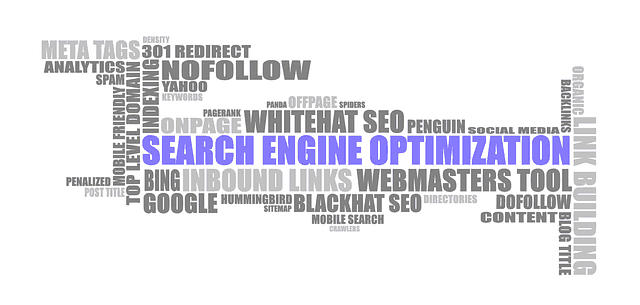
SEO Abbreviations: A Comprehensive List
In every industry there are abbreviations and there are certain meanings behind those abbreviations. In SEO, it’s no different. There are many abbreviations for tools, phrases, and just abbreviations for abbreviations’ sake. Read on to learn more about these abbreviations and how you can use them to your advantage when not wanting to type the whole word to your friends or colleagues. 😉
GSC
“GSC” stands for Google Search Console. Google search console is one of the most used tools in any SEO’s toolset. Google Search Console can help you with understanding the search traffic clicking through to your website, it can help you see the number of indexed pages on Google from your website, and it can help you submit pages and posts from your site to Google for indexing amongst other things. Overall, there are many benefits of utilizing Google Search Console and we’d recommend you begin to use the acronym “GSC” to help you increase productivity.
GA
“GA” stands for Google Analytics. Google analytics is a tool which many non-SEOs use as well, but you’ll definitely want o recognize the “GA” term when communicating with fellow SEOs. Google Analytics provides such valuable data and the fact that it can help so many of us understand the ins and outs of our traffic is reason enough to have this acronym engrained in your memory.
PPC
While PPC stands for “Pay-Per-Click” (referring to pay-per-click advertising) which is not directly associated with SEO, it’s still important to recognize the terminology. As an SEO, there will be a time when you’ll have to use PPC to help your client or help yourself with some A/B testing of ads, landing page redirects, or any number of paid advertising options.
OBLs
“OBLs” are a lesser known abbreviation in the SEO community standign for “Outbound Links”. This refers to the links which are embedded within content pointing to websites which are not within your domain. Here is an example. There are two types of outbound links: “nofollow” and “dofollow”. “nofollow” links do not provide direct value to your domain in the form of “link-juice” but they will provide valuable referral traffic and possible signaling for search engines. “dofollow” links help tremendously with your SEO efforts. “dofollow” links provide the esteemed “link-juice” for your domain which helps to increase your domain authority. Additionally, OBLS within your own content will signal to search engines you did your research when producing content. They act as somewhat of a reference/source for your writing. Overall, OBLs are great to have within your content due to the fact it helps your SEO and it helps the sites you’re linking to.
URL
“URL” stands for “Uniform Resource Locator”. Most people, even those outside the SEO industry, will know what you’re referring to when you mention “URL”. It can be interchangeably mentioned when referring to the address of the site, the domain itself, and the area where you type in the URL. It’s one of the abbreviations which has taken on a life of its own and one you most likely already knew about.
UTM
“UTM” stands for “Urchin Tracking Module”. “Urchin Tracking Module” refers to what was the original form of Google Analytics. Google acquired Urchin in the mid-2000s and subsequently incorporated it into its own platform. The UTM source code is extremely valuable for those who are using social media as a part of their SEO process. When you have many links you want to keep track of, it’s important to be able to differentiate between those links and the UTM source does just that!
GTM
“GTM” refers to “Google Tag Manager” which is used by many SEOs to keep track and quickly modify code and snippets on your site or mobile app when analyzing traffic or searching for ways to further optimize your site and/or mobile app. Being that “Google Tag Manager” is quite a lot to type out, it’s easier to just type “GTM” and most will know what you’re referring to. If they don’t, send them this article.
DA or DR
“DA” or “DR” refers to “Domain Authority” or “Domain Rating”. Domain authority is something which is developed over time and is a signal when determining how well a page may rank within search engines. Those sites with a high DA will tend to rank higher than those sites with a low DA. Domain authority is derived from a number of factors such as your domain’s age, the number of links your site possesses, the organic keywords you’re already ranking for, and many other factors.
PA or PR
“PA” or “PR” refers to “Page Authority” or “Page Rating”. Page authority is the authority a specific page exudes and is influenced by many factors ranging from how effective an internal linking structure is to the number of external links are pointing to the specific page to the number of words the page has. There are many, many factors involved but if you’d like to refer to page authority without typing it out, just say “PA” and most SEOs will know what you’re referring to.
SEO Abbreviations, Overall…
When using these abbreviations, it’s important to ensure the person you’re speaking to understands what you’re saying. If they don’t, feel free to forward them this guide and keep them up-to-date on the ins and outs of abbreviations within the SEO industry. If you have any SEO abbreviations of your own, feel free to contact us and we’ll be sure to add them to the list. Also, if you happen to have a site of your own and would like a complimentary SEO audit, feel free to fill out the form below and we’ll be happy to send an SEO audit of your site your way within 24 hours. We look forward to hearing from you soon!
